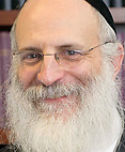Smoking and timing of cessation: Impact on pulmonary complications after thoracotomy Journal Article
| Authors: | Barrera, R.; Shi, W.; Amar, D.; Thaler, H. T.; Gabovich, N.; Bains, M. S.; White, D. A. |
| Article Title: | Smoking and timing of cessation: Impact on pulmonary complications after thoracotomy |
| Abstract: | Study objective: The benefit of smoking cessation just prior to surgery in preventing postoperative pulmonary complications has not been proven. Some studies actually show a paradoxical increase in complications in those quitting smoking only a few weeks or days prior to surgery. We studied the effect of smoking and the timing of smoking cessation on postoperative pulmonary complications in patients undergoing thoracotomy. Design and setting: Prospective study conducted in a tertiary care cancer center in 300 consecutive patients with primary lung cancer or metastatic cancer to the lung who were undergoing anatomical lung resection. Results: The groups studied were nonsmokers (21%), past quitters of > 2 months duration (62%), recent quitters of < 2 months duration (13%), and ongoing smokers (4%). Overall pulmonary complications occurred in 8%, 19%, 23%, and 23% of these groups, respectively, with a significant difference between nonsmokers and all smokers (p = 0.03) but no difference among the subgroups of smokers (p = 0.76). The risk of pneumonia was significantly lower in nonsmokers (3%) compared to all smokers (average, 11%; p < 0.05), with no difference detected among subgroups of smokers (p = 0.17). Comparing recent quitters and ongoing smokers, no differences in pulmonary complications or pneumonia were found (p = 0.67). Independent risk factors for pulmonary complications were a lower diffusing capacity of the lung for carbon monoxide (DLCO) [odds ratio [OR] per 10% decrement, 1.41; 95% confidence interval [CI], 1.17 to 1.70; p = 0.01) and primary lung cancer rather than metastatic disease (OR, 3.94; 95% CI, 1.34 to 11.59; p = 0.003). Among smokers, a lower DLCO percent predicted (OR per 10% decrement, 1.42; 95% CI, 1.16 to 1.75; p = 0.008) and a smoking history of > 60 pack-years (OR, 2.54; 95% CI, 1.28 to 5.04; p = 0.0008) were independently associated with overall pulmonary complications. Conclusions: In patients undergoing thoracotomy for primary or secondary lung tumors, there is no evidence of a paradoxical increase in pulmonary complications among those who quit smoking within 2 months of undergoing surgery. Smoking cessation can safely be encouraged prior to surgery. |
| Keywords: | survival; adult; controlled study; treatment outcome; aged; middle aged; survival analysis; major clinical study; mortality; comparative study; postoperative care; preoperative care; cancer staging; methodology; neoplasm staging; prospective study; prospective studies; lung resection; thoracotomy; lung neoplasms; pneumonectomy; proportional hazards models; incidence; odds ratio; lung cancer; smoking cessation; smoking; sex ratio; time; time factors; risk assessment; risk; pneumonia; lung embolism; postoperative complication; postoperative complications; confidence interval; confidence intervals; lung tumor; proportional hazards model; reference values; atelectasis; bronchoscopy; multivariate analysis; age distribution; lung surgery; forced expiratory volume; hypoxemia; lung function test; lobectomy; sex distribution; bronchospasm; respiratory failure; reference value; carbon monoxide; respiratory function tests; lung diffusion capacity; thoracic surgery; tobacco cessation; pulmonary complications |
| Journal Title: | Chest |
| Volume: | 127 |
| Issue: | 6 |
| ISSN: | 0012-3692 |
| Publisher: | American College of Chest Physicians |
| Date Published: | 2005-06-01 |
| Start Page: | 1977 |
| End Page: | 1983 |
| Language: | English |
| DOI: | 10.1378/chest.127.6.1977 |
| PUBMED: | 15947310 |
| PROVIDER: | scopus |
| DOI/URL: | |
| Notes: | --- - "Cited By (since 1996): 93" - "Export Date: 24 October 2012" - "CODEN: CHETB" - "Source: Scopus" |
Altmetric
Citation Impact
BMJ Impact Analytics
Related MSK Work








